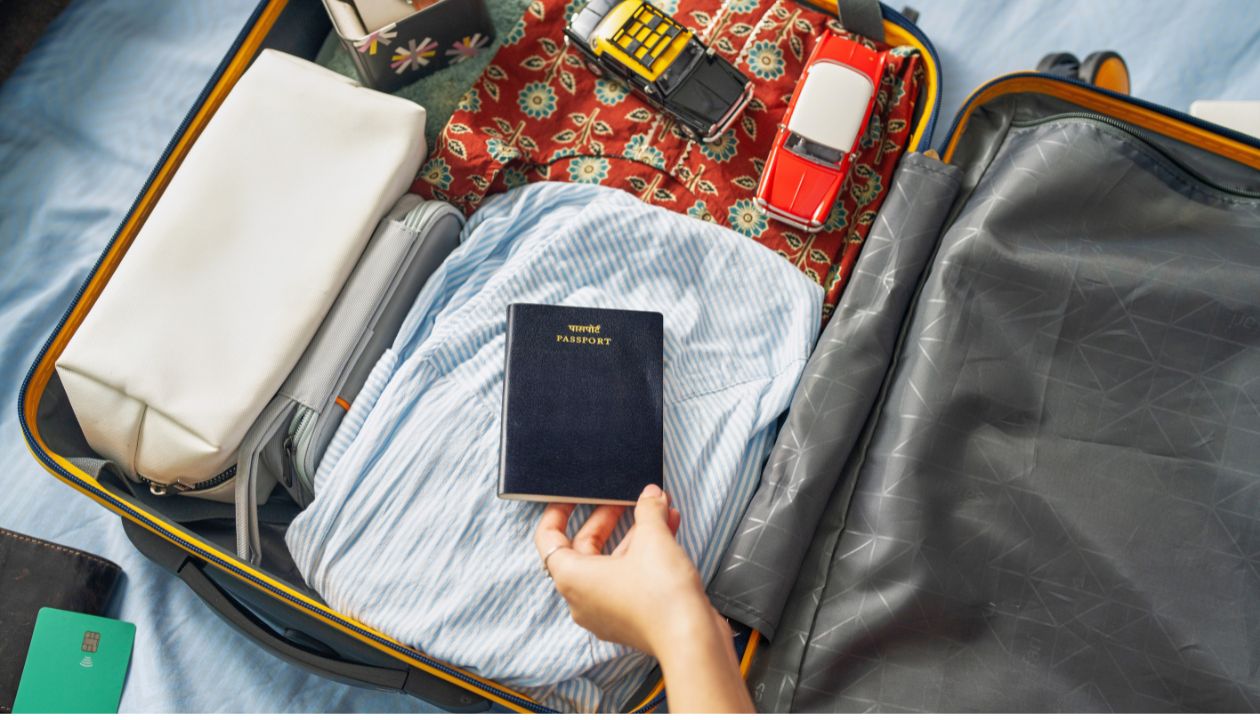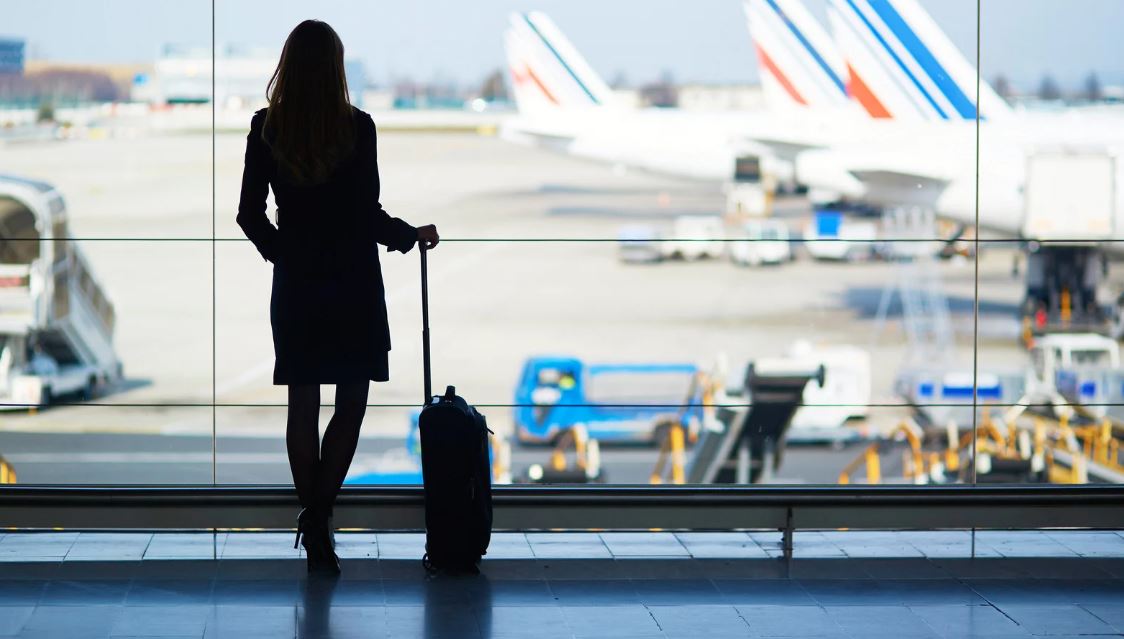
10 Things You Should Never Pack in Your Check-in Bag
When packing for your trip, you might think you can put everything into your checked-in luggage since they have more travel capacity and are placed in the cargo underneath the aircraft, not with you. Therefore, you can pack everything you need, keeping in mind that the weight of your luggage at the end should not be more than the airline limit. But you might be wrong. Not everything can be packed in the checked-in luggage.

Your checked-in luggage goes through strict security scanning at the airport. Everything is scanned, and if you are found carrying any prohibited item in your luggage, strict action can be taken against you, or it's done simply for your security.
Here is a list of 10 things that you should not carry in your checked-in luggage.
1. Valuables (Jewellery, Electronics, Cash)
The process of handling checked-in bags involves long periods away from your sight, followed by multiple systems of handling. Laptops and cameras, as well as cash together with expensive jewellery, make up the main category of items that are regularly stolen and misplaced while stored in checked-in luggage. All these items need to remain inside your carry-on luggage. Exposed electronics face damage because of rough handling along with temperature fluctuations during standard baggage storage in the cargo compartment. Your most valuable devices and accessories should remain near you at all times.
2. Medications and Medical Supplies
The accessibility for your meds should be immediate and especially urgent when flight delays happen. It poses a dangerous situation when essential medication gets lost during transport. Start every journey with medications, along with all necessary medical tools securely placed in your personal belongings.
Pack a sturdy first aid kit accompanied by over-the-counter medications, together with allergy medication when required.
Travelers should carry duplicate prescription documents because it helps them obtain medication replacements when they are outside their home country.
3. Travel Documents and Identification
Your documents, such as passports with ID and insurance papers, along with visas and boarding passes, must remain with you at all times. Protection during travel requires original travel documents and your identification.
Save digital versions of these documents in cloud storage and store them safely to handle immigration and check-in situations that arise without your travel belongings.
The storage of these documents proves crucial because it provides essential help when emergencies arise.
4. Laptops and External Drives
Cost aside, laptops, along with hard drives, maintain significant personal data for users. Mishandling of baggage at airports occurs frequently enough to harm electronics. Having these items on you ensures both their security and accessibility.
The security protocols at airports ask travelers to submit laptops during check-in, so owners can benefit by keeping their computers right inside their carry-on luggage.
You can use Koora checked-in luggage because they are durable, sturdy and can handle the harsh baggage treatment at the airports.
5. Essential Clothing Items
Novel clothing items, together with undergarments and sleeping garments, should be packed in your carry-on bag because checked-in luggage delays are possible.
Place one set of clothing together with new undergarments in your carry-on suitcase for emergencies. Your carry-on bag should contain socks plus a tiny toiletry kit following liquid regulations.
You can use accessories like leather tags with blank cards inside to write your details on it or GPS trackers on your checked-in luggage to find your luggage if it gets misplaced or delayed to know when and where you can find that.
6. Perishable Food Items
Never place perishable(food that gets spoiled quickly) items inside your checked-in luggage.
When you pack your luggage with perishable items, you face two problems since spoilage can create an unpleasant odor and you may violate customs regulations, leading to item confiscation and monetary fines.
Leaked liquid substances have the power to damage your clothing and every other item inside your suitcase.
Passengers should select dried, non-spoilable snacks such as nuts or protein bars, which are permitted through carry-on restrictions.
7. Fragile Items
Checked-in luggage should never contain items such as delicate souvenirs or glass bottles because they can be damaged easily. The fragile tags on bags do not protect them from being discarded through abusive handling or piled up under restricted weight limits.
Place all delicate objects securely wrapped inside your carry-on luggage for protection. When sending valuable delicate items such as artwork, it is best to opt for professional shipping.
8. Power Banks and Lithium Batteries
The transportation of power banks together with spare lithium batteries in checked-in luggage remains prohibited by airlines since they represent fire hazards. Keep those items in your carry-on while checking the current rules with the airline before departure. Strict enforcement of the rule regarding lithium battery fires in the cargo hold exists due to their potentially catastrophic impacts.
9. Important Work or Study Documents
Business and study travelers should put crucial documents and presentations, and research materials in their carry-on luggage. The loss of these items will probably disturb your travel experience.
The digital files that you need should be properly backed up through an online storage system so you can access them across different devices.
10. Keys (House, Car, Office)
Discovering at home you have lost your keys because they were inside a lost luggage would be a stressful experience. Hold onto your essential keys in a safe pocket of your carry-on or personal item without subjecting yourself to stressful situations. A smart tracker attachment provides additional security to your keys.
Bonus Tips for Smart Packing
-
Using packing cubes will help you systematically sort your carry-on bag while making important items easily accessible.
-
Make certain every item bears your name label together with a phone number and email address on your checked-in luggage and your carry-on luggage.
-
Awareness about your airline's baggage regulations during travel can help you survive unexpected situations.
Maintain a comprehensive record of packed items to use during a baggage claim process.
Final Thought
Look carefully through your checked-in luggage before packing by asking whether you need this item for your upcoming few days. A brief amount of planning makes travel much less stressful during your trip.
Effectively packing your things in any bag entails both packing necessary items and removing unneeded ones. Your carry-on luggage supports you during airport delays since your checked-in bags may not arrive on time.
Giving your journey careful planning will establish your security while traveling.



Leave a comment
This site is protected by hCaptcha and the hCaptcha Privacy Policy and Terms of Service apply.